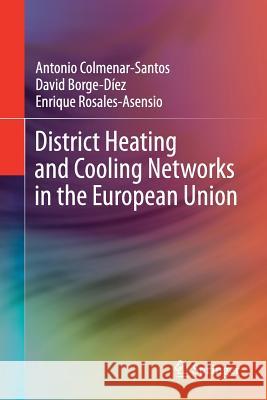District Heating and Cooling Networks in the European Union » książka
topmenu
District Heating and Cooling Networks in the European Union
ISBN-13: 9783319579511 / Angielski / Miękka / 2017 / 149 str.
Kategorie:
Kategorie BISAC:
Wydawca:
Springer
Seria wydawnicza:
Język:
Angielski
ISBN-13:
9783319579511
Rok wydania:
2017
Wydanie:
2017
Numer serii:
000444563
Ilość stron:
149
Waga:
0.25 kg
Wymiary:
23.39 x 15.6 x 0.94
Oprawa:
Miękka
Wolumenów:
01
Dodatkowe informacje:
Wydanie ilustrowane











